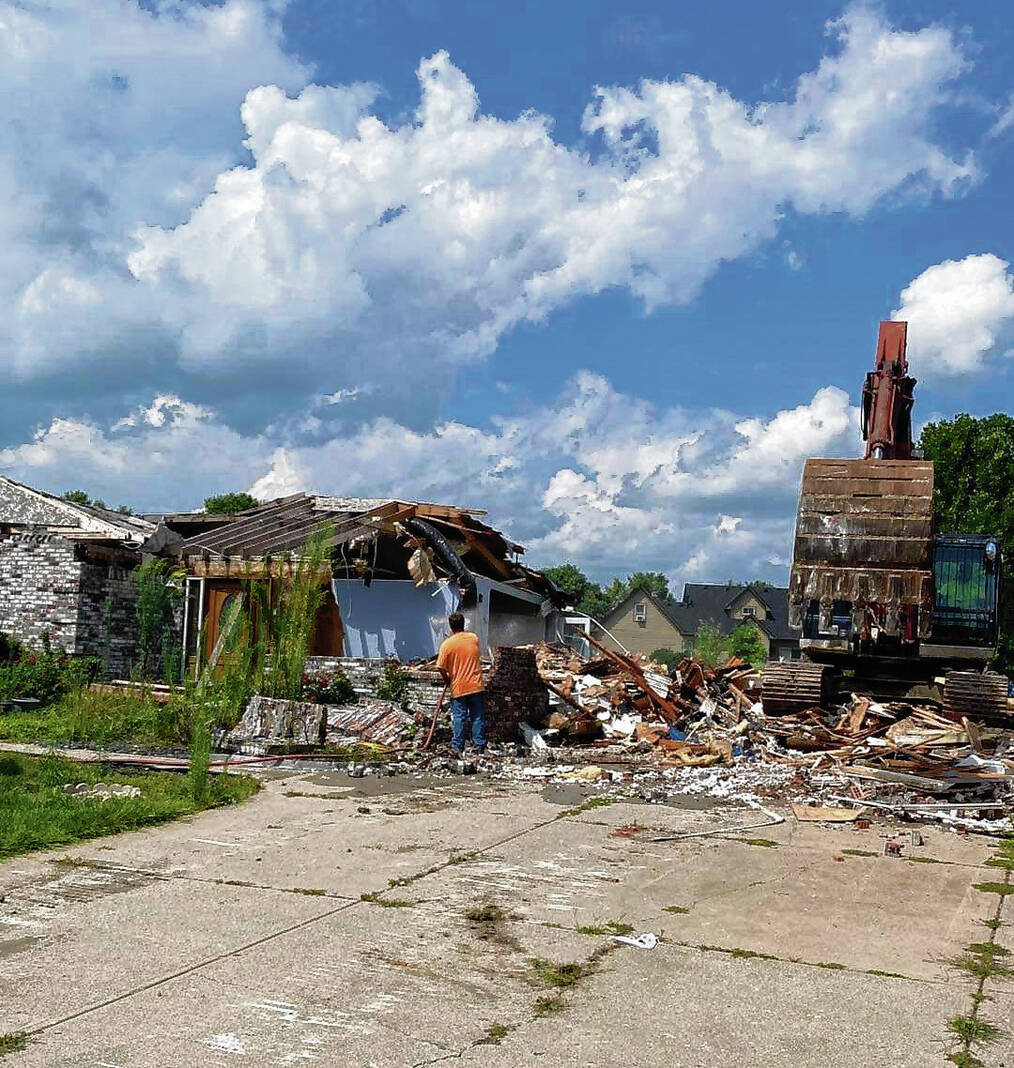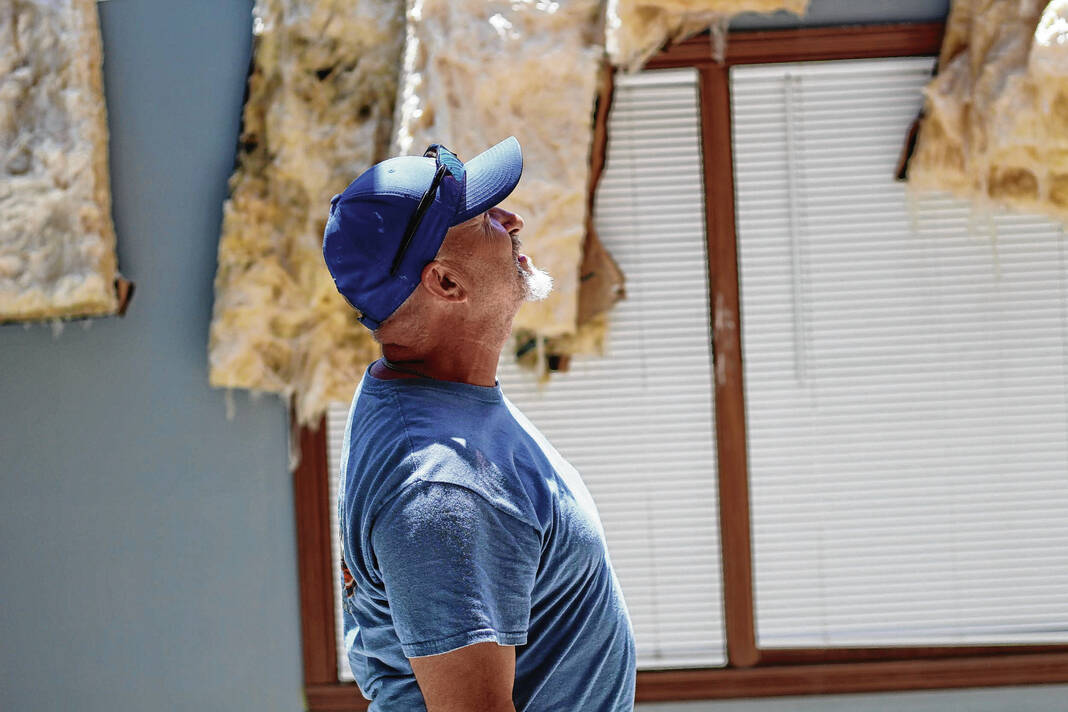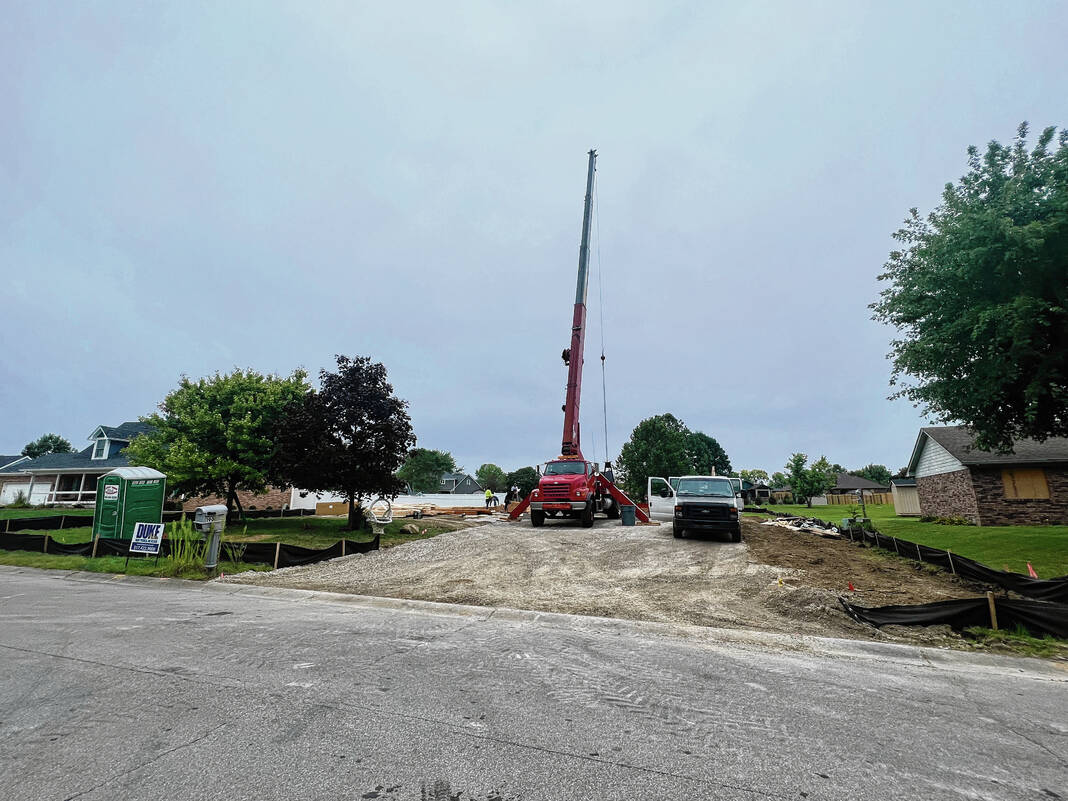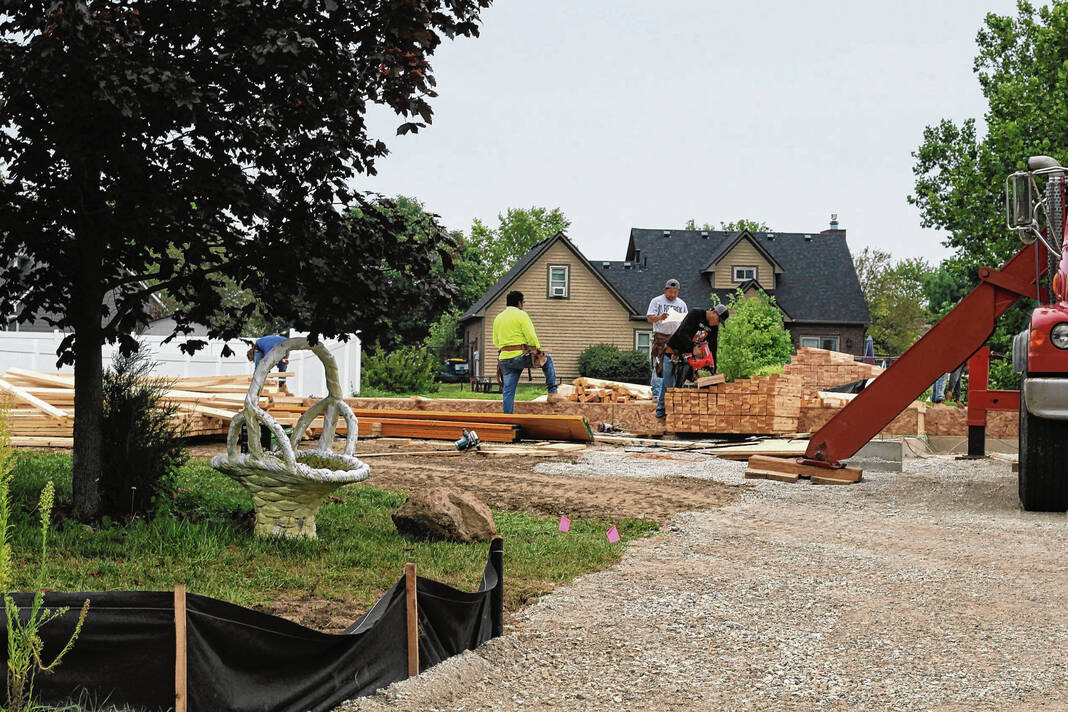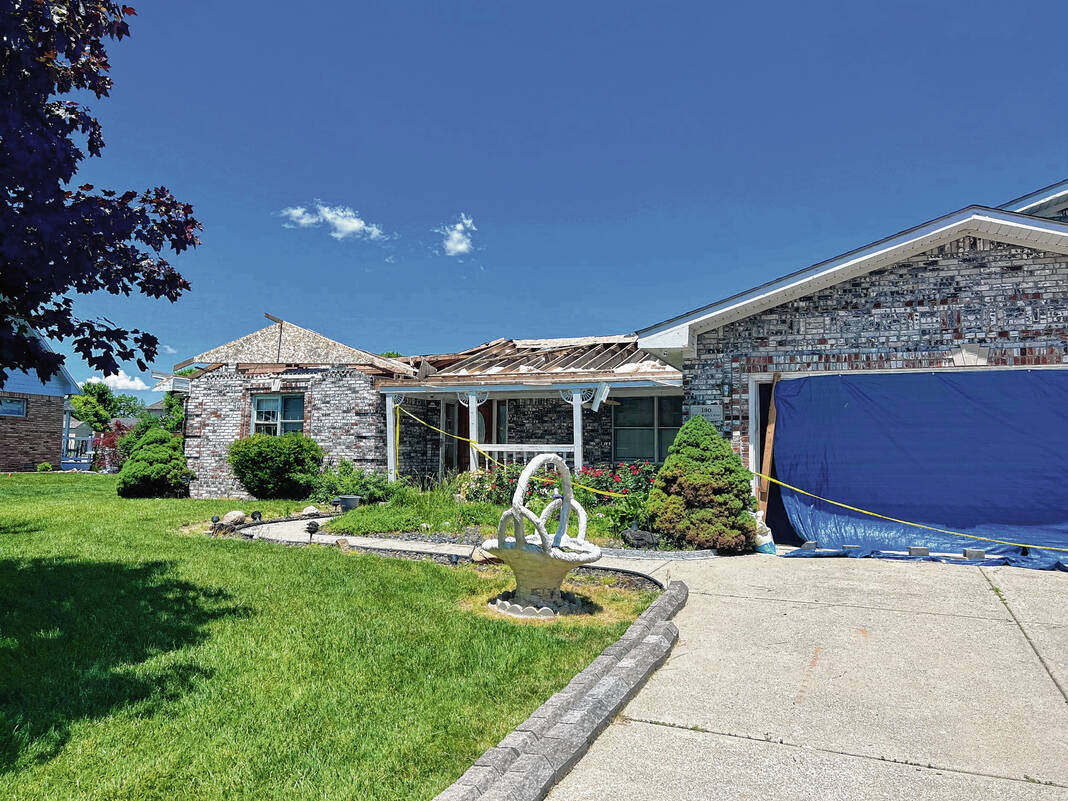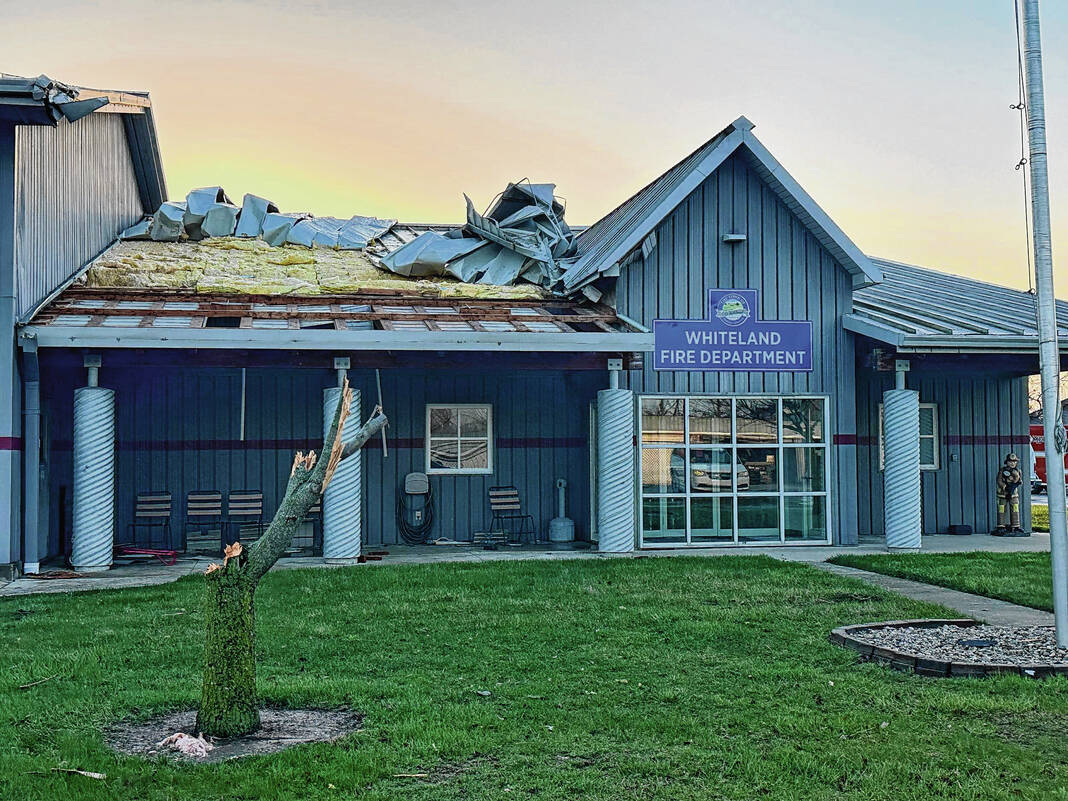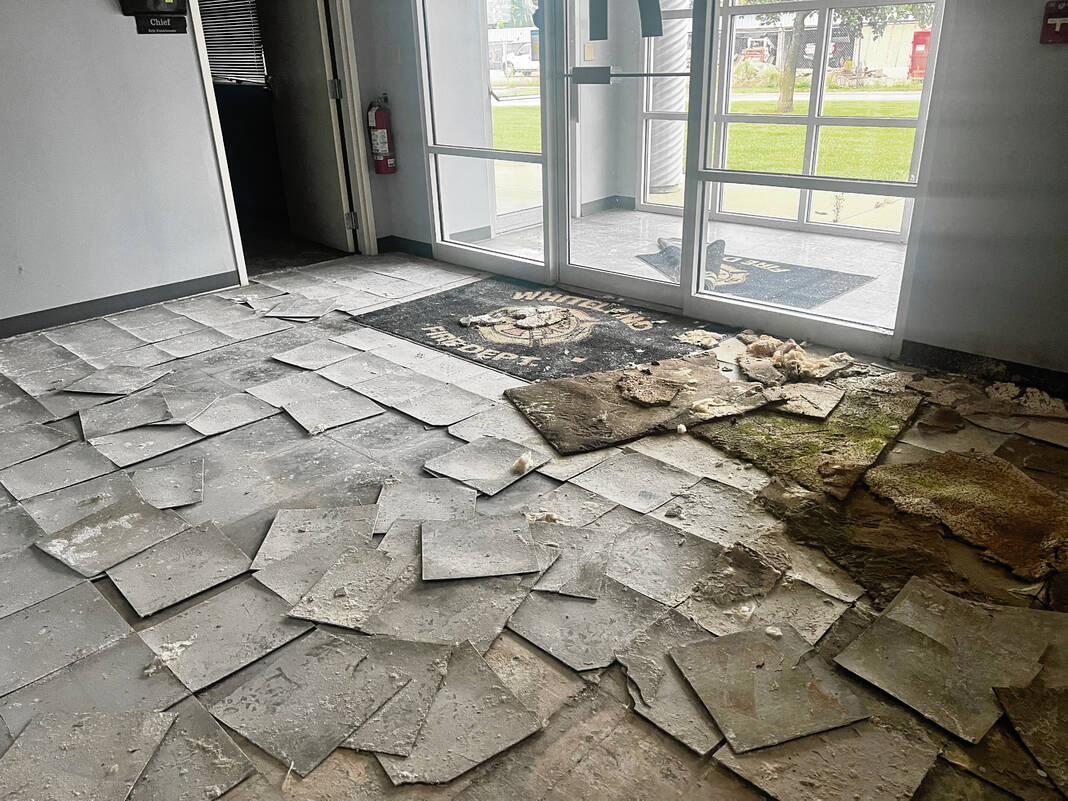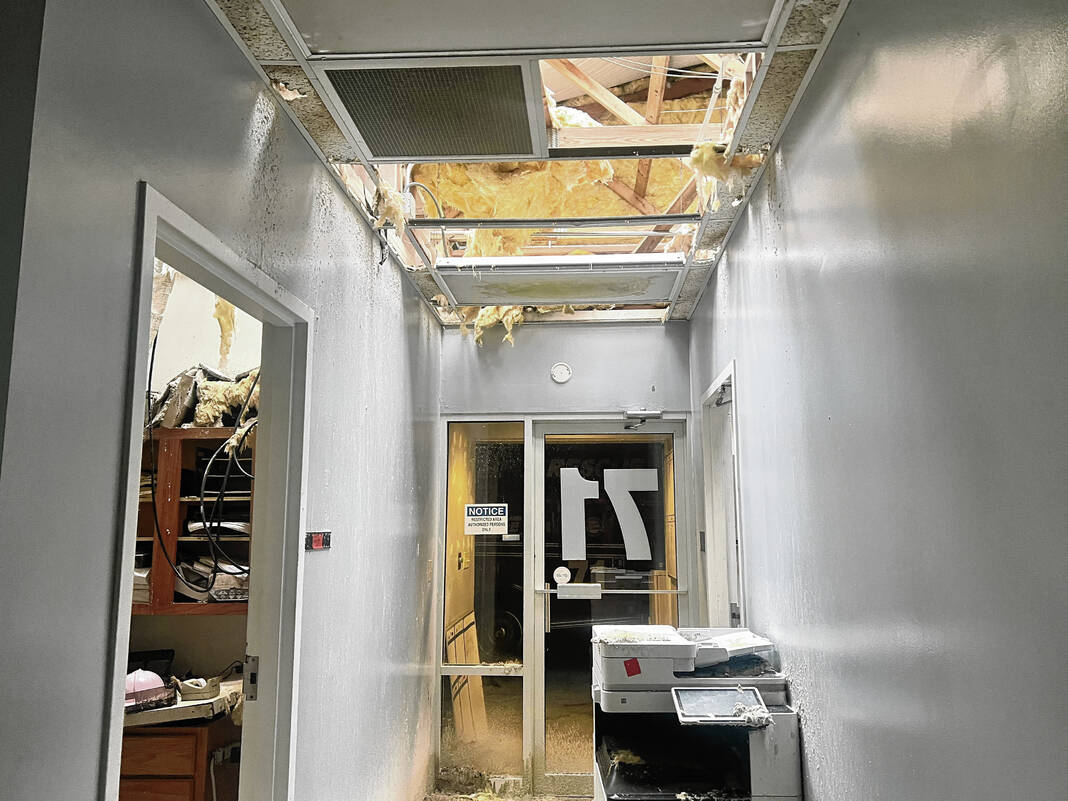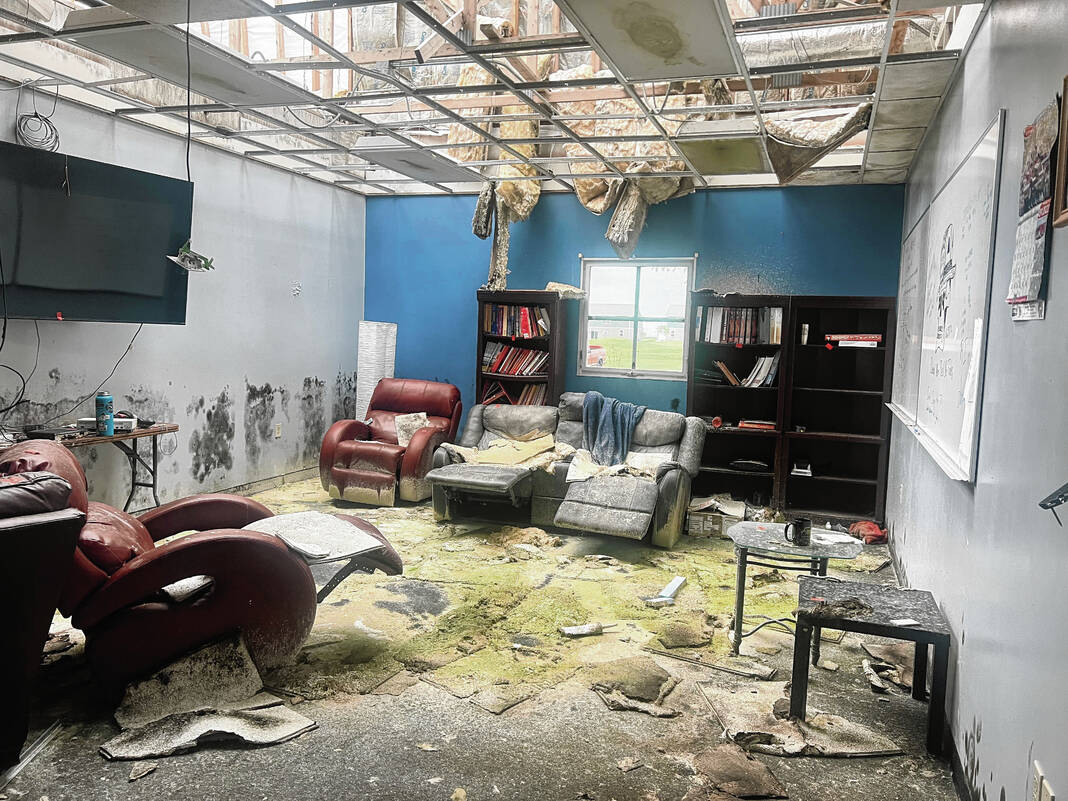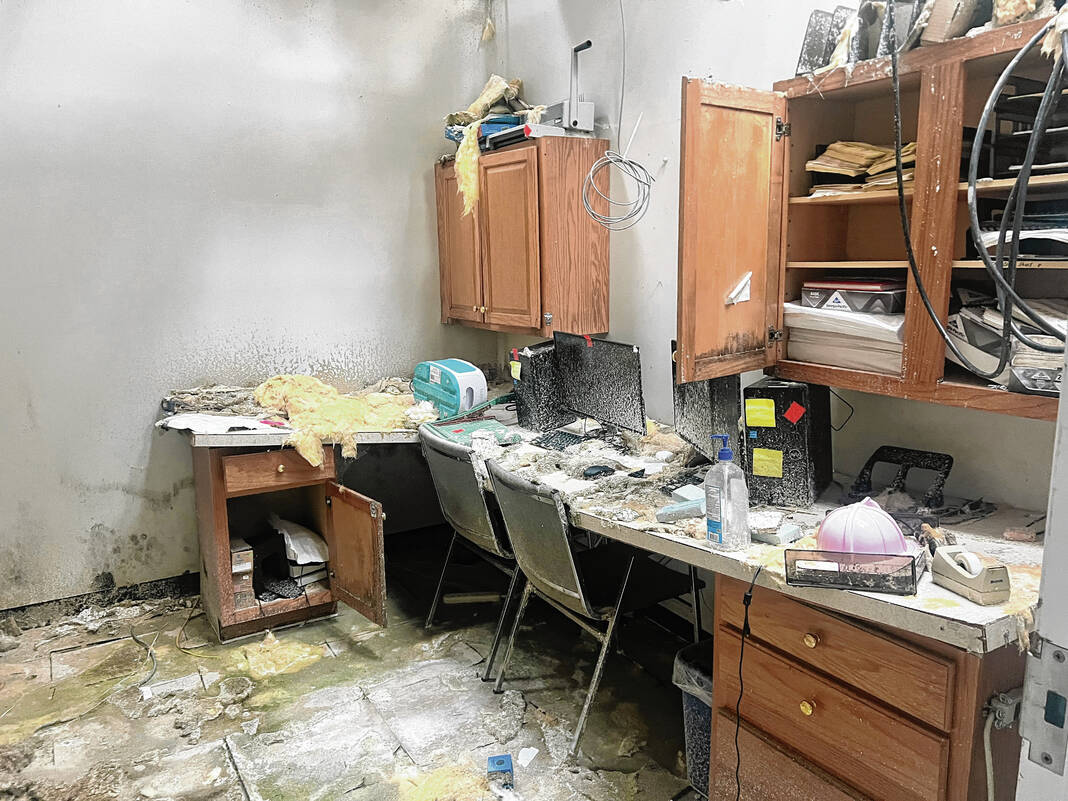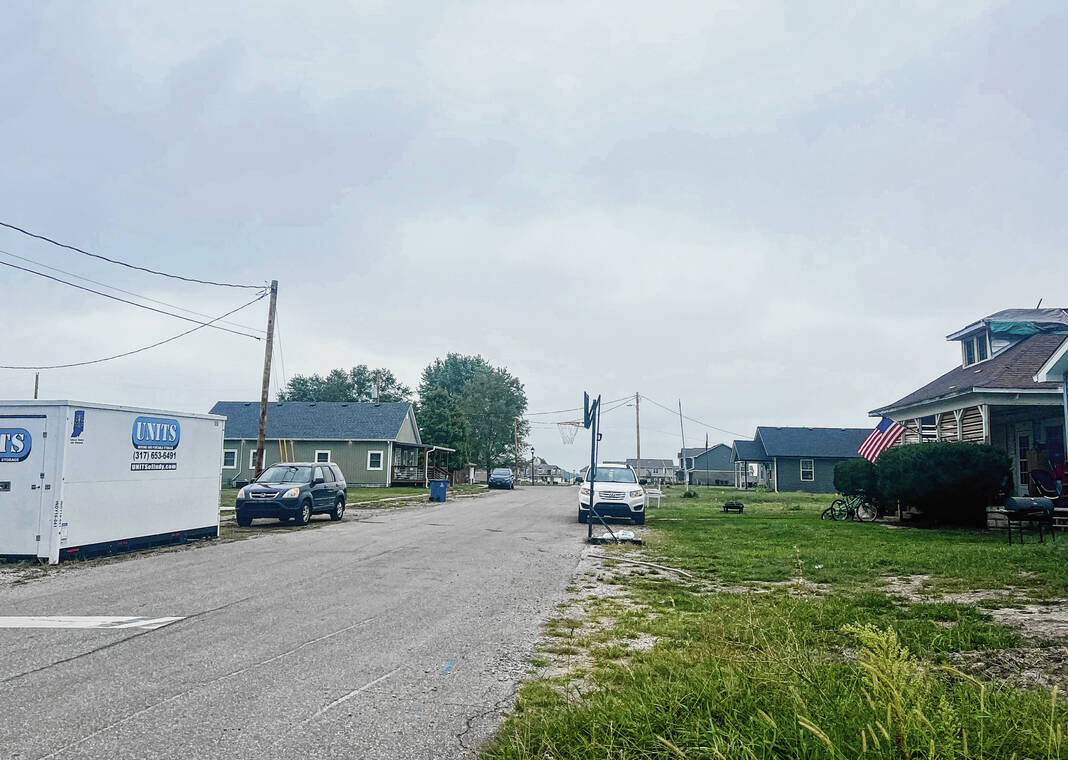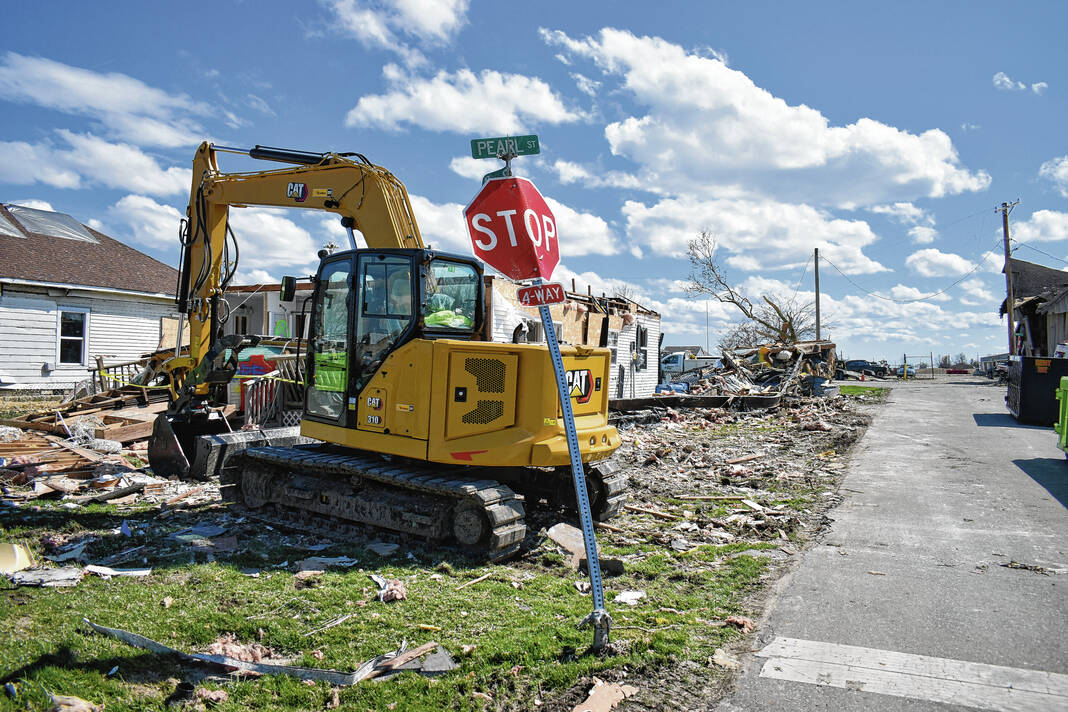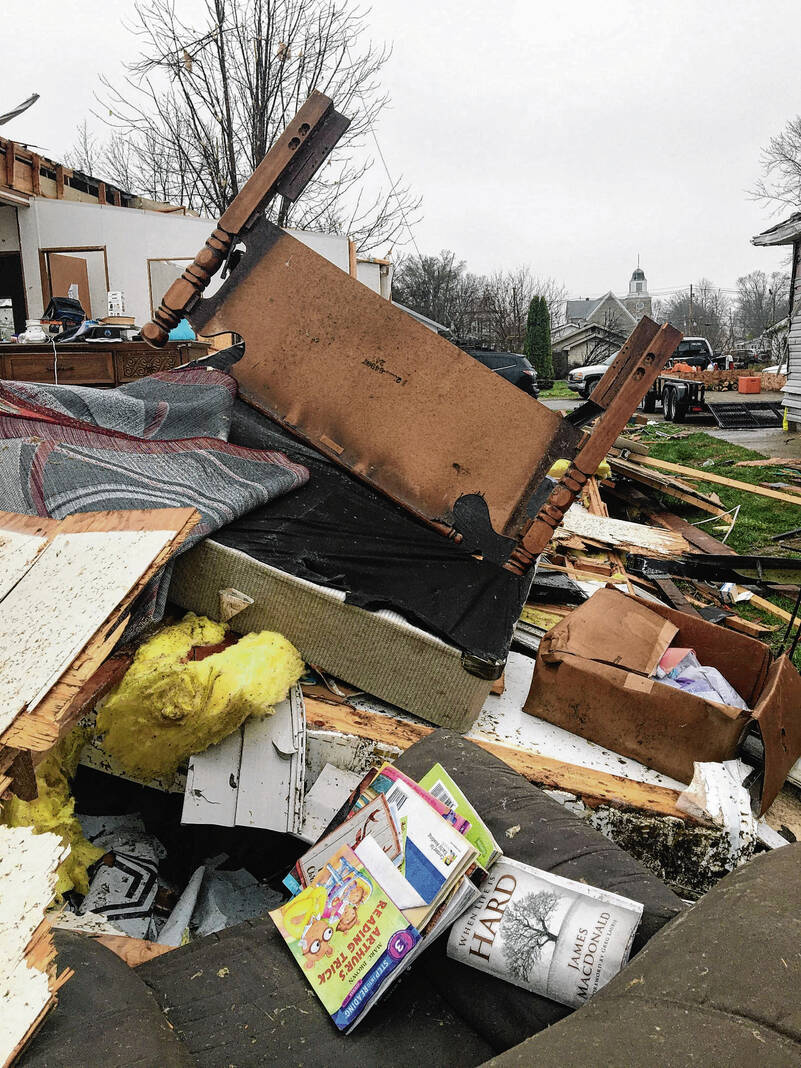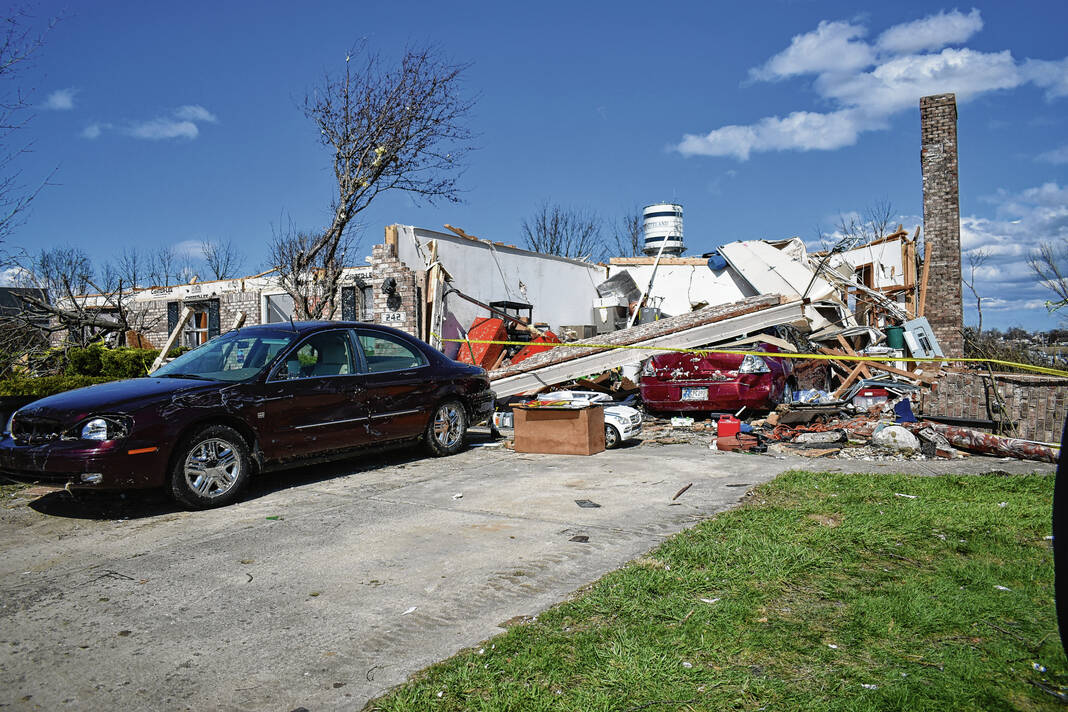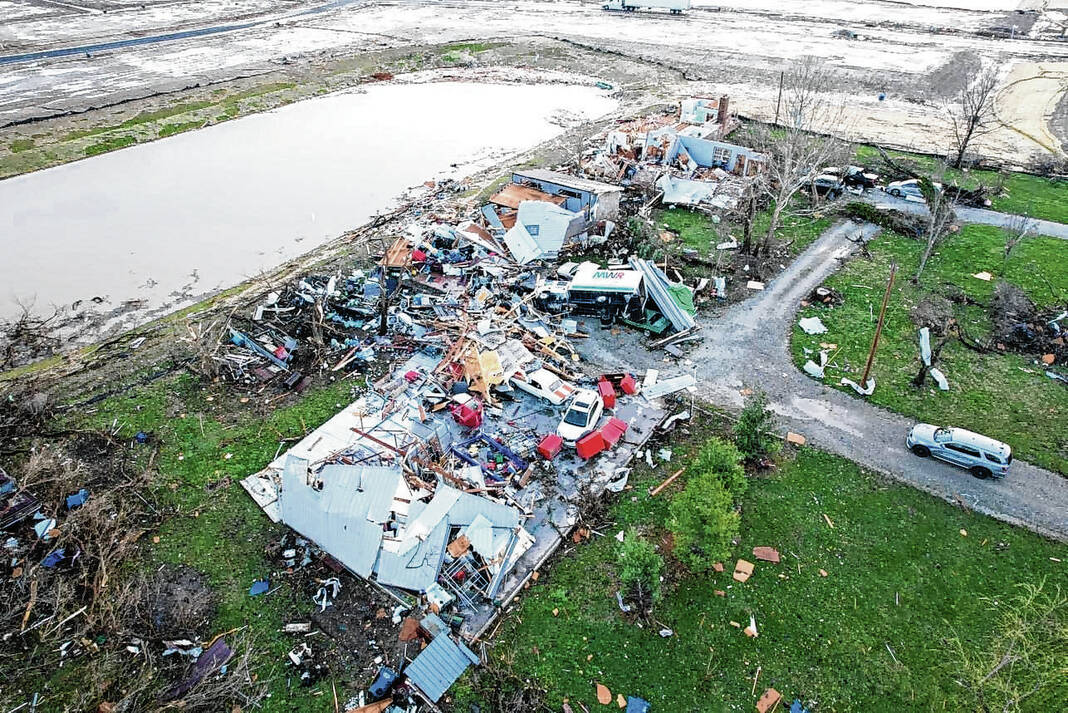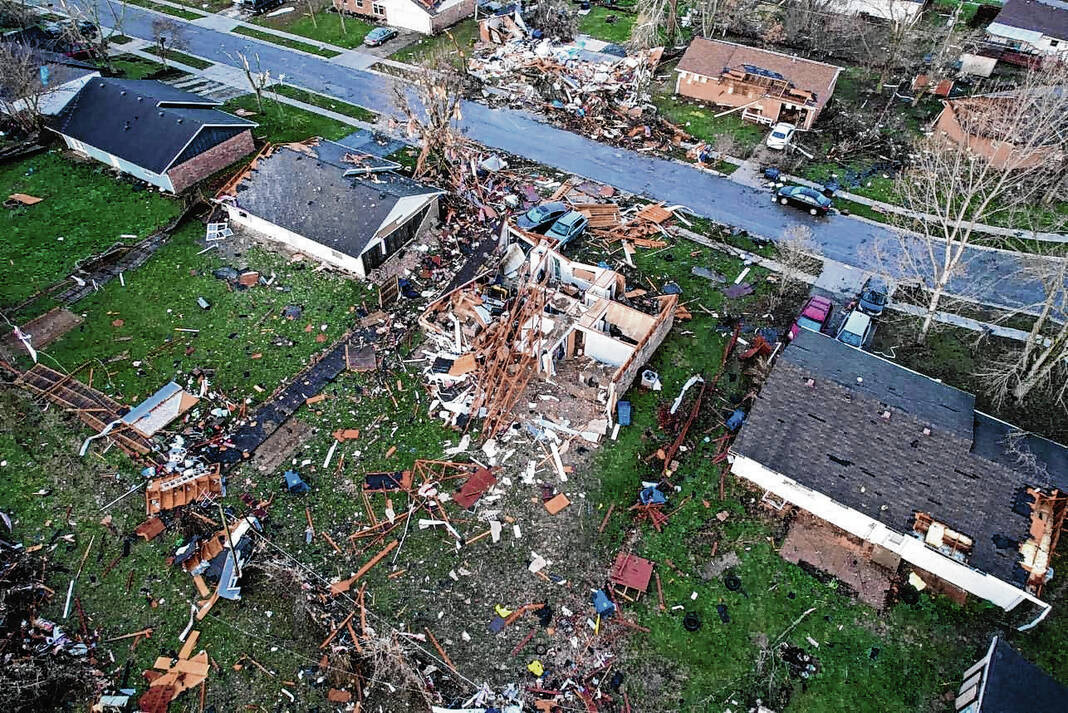Months after their house was destroyed by a tornado, the walls in their new home are finally going up.
Robert and Amy Stuck’s lives were uprooted when an EF-3 tornado ripped through Whiteland on March 31, taking their home with it in its path of destruction. For four months, their house in the Park Forest neighborhood sat empty awaiting demolition, what was left inside being taken over by nature.
“Overjoyed is an understatement. We’re ready to be moved back in,” Robert Stuck said.
The night of March 31, the tornado tore through their house in about 17 seconds. It ripped large sections of the roof off, while the Stucks sheltered inside, hearing the house fall apart around them.
The Stuck family built their home together 27 years ago. There are many memories there, they said, so they knew they wanted to rebuild and stay in Whiteland. They hired Duke Homes to work on the rebuild and they plan to keep the floor plan the same as it was before.
Throughout this months-long process of rebuilding, Robert Stuck had described working with his insurance company as “terrible” not long after the tornado hit. Since then, things turned around, he said. Most of the cost of rebuilding will be covered by their insurance, as well as the cost of their temporary housing.
Now, they have to wait as they watch their new house come together piece by piece. Amy Stuck has been very involved in picking out everything from doors and windows to the bricks for their home.
Amy Stuck’s grandfather, who was instrumental in building their home the first time, passed away this year while they were going through rebuilding. He passed the same week they got their new house floorplans.
“That was hard to process,” Amy Stuck said. “We got the new floorplans for the house and like, I just wanted everything to be the same you know?”
One of the biggest challenges they’re facing now is itemizing what they still have and what they lost in the tornado. The Stucks have their personal items scattered in different places while they have been living in an apartment for the last five months.
“It’s weighing on me because I need to go through 80 pages worth of personals, and coming up with what’s missing and what got taken from the tornado,” Amy Stuck said.
“We got our stuff scattered over 10 different places,” Robert Stuck said. “And as we’re going through things at different places, or we’re trying to find something, that’s when we’re realizing that we probably don’t have it anymore.”
The Stucks are grateful for their friends and family, who have supported them and helped them get through this disaster. They don’t know if they could go through this without them, they said.
“We’ve got certain friends and family that are just, they’ve been rockstars,” Robert Stuck said. I mean, when something like this happens, you know who the hell your friends are.”
Rebuilding after losing their home to a tornado has been a learning experience, they said. The best advice they offered from their experience so far is for people to look into their home insurance, and ensure they are covered for everything in case of disaster.
“We’ve learned a lot. I’ve said, like, I could write a book about this,” Amy Stuck said.
The Stucks hope to move back to their house sometime around February or March next year.
Fire department still awaits repairs
Throughout the rest of Whiteland, destroyed houses have largely been demolished and cleaned up. Several empty lots now sit along Pearl Street, where pieces of houses hit by the tornado once sat. Some homes along the street have been nearly rebuilt.
Just south of Pearl Street, the Whiteland Fire Department remains as it did five months ago, half-destroyed.
The tornado peeled back the roof over most of the station’s living quarters, and most of what was inside was destroyed. What’s left of that half of the building is still standing, pieces of roof and insulation fill the station, the smell of mold and mildew has taken over. Sunlight peaks through parts of the roof that are gone.
The bay where vehicles are stored was untouched and still functions for the fire department to use today.
Different insurance assessors, engineers and people from the Federal Emergency Management Agency, or FEMA, have been out to the station several times in the last few months, Chief Eric Funkhouser said. They are waiting on one more report from FEMA, to then hopefully get demolition and construction started soon, he said.
“We’re getting real close now to having a good understanding of what we’re going to be looking at here soon,” Funkhouser said.
The plan likely is to keep the truck bay and rebuild the other half the station, Funkhouser said.
For now, the Whiteland Fire Department has been sharing space with the New Whiteland Fire Department at Station 11. The two departments have gotten used to the closer quarters working together these last five months.
“You’ve taken a station that was built for one crew, and you’ve put two crews together, and they’ve done really well together,” Funkhouser said. “When I go over there, they’re always hanging out and having a good time.”
Whiteland has kept its main fire engine with them at the New Whiteland station, and they keep their other trucks in the bay in Whiteland. If one of those is needed on a call, they can run over and get it.
“We can go over there, right now, we can open the garage doors, we can get any truck out that we need, we still store stuff over there,” Funkhouser said.
Relocating to New Whiteland has had little effect on response times, since both stations were relatively close to each other, and centrally located in the department’s response areas, he said.
Funkhouser continues to be thankful to New Whiteland for opening up its space for them while they were forced out of their station. Without them, Whiteland Fire would be hurting more, he said.
He hopes to soon find temporary housing for the fire department closer to Station 71 back in Whiteland. Some options on the table are a trailer that would be placed near the vehicle bay or renting a vacant house nearby.
“It’s one of those things, when something like that happens, you think that, you know, they’re gonna come in and be able to rebuild and fix it instantly. It just, it doesn’t work that way,” Funkhouser said. “We’re kind of at the mercy of waiting on reports to come back.”
Other town building repairs in limbo
Other municipal structures damaged by the tornado in Whiteland are also awaiting a final report from FEMA, which town officials said they expect to see soon.
Shaun Young, Whiteland’s director of operations, has been working directly with FEMA over the last few months on assessing building damage and reviewing the town’s insurance policies.
The street department suffered damage to its building and vehicles, and one building was destroyed at the wastewater treatment plant. That building at the plant housed some equipment and vehicles that needed to be replaced. The building was also pushed onto another building, which then damaged the belt press of the treatment plant.
Town officials don’t have a final number on the cost of these damages. That’s something they likely will not know until rebuilding officially starts, said Carmen Young, director of administration. The town did spend around $200,000 on debris cleanup, she said.
Besides the fire department, the other damaged town buildings have mostly been cleaned up.
As far as other issues with residents rebuilding, the town solved some previous building standards problems it had with certain lots on Pearl Street not meeting the new building standards.
Pearl Street, which saw the most damage, is one of the older areas in town. Those houses are smaller and built with different building codes than what Whiteland has now. If 75% of a house is destroyed, it is supposed to be built back to current standards, according to town code. Carmen Young was authorized to sign off on waiving those standards for those houses, particularly on the lot size, since the lots are only 50 square feet, and the current minimum residential lot width is 70 square feet.
Carmen Young still asks that any residents call the town if they have issues with rebuilding, or if there is anything they aren’t sure about, such as what requires a permit and what does not.
Residents who still need help beyond their insurance company and FEMA can reach out to the Whiteland Long-Term Recovery Group. Disaster relief donations are also still accepted by the Johnson County Community Foundation. Donations made to Whiteland are going toward the long-term recovery group.
HOW TO GET HELP
Whiteland residents affected by the March 31 tornado who have unmet needs after going through insurance, FEMA and SBA can contact the local Long-Term Recovery Group.
Phone: 317-883-7102
Email: [email protected]
Donations can still be made to Whiteland through the Johnson County Community Foundation at jccf.org.



